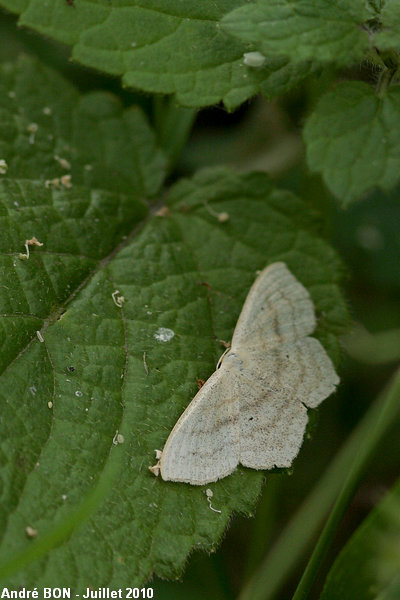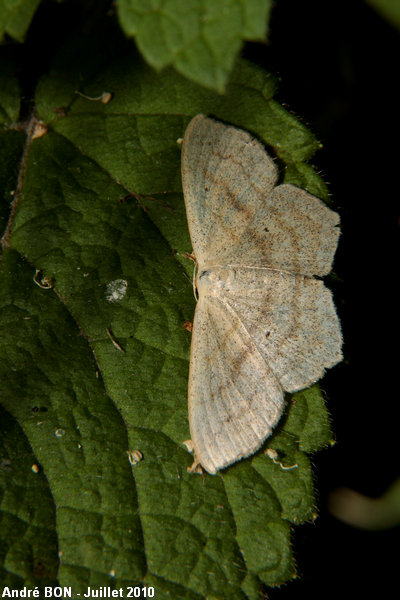

| Sub-angled Wave (Scopula nigropunctata (Hufnagel, 1767)) |


|
|
Scientific name: Scopula nigropunctata (Hufnagel, 1767) Common name: Sub-angled Wave French name: Acidalie étrille Order: Lepidoptera Suborder: Heterocera Family: Geometridae Subfamily: Sterrhinae Wingspan: 29-34 mm. Biotope: Fresh and shady places, woodlands, grassy clearings, parks and gardens. Geographic area: Palaearctic region. Flight time: May to August. Number of generations : 1, sometimes 2 in the southern part of its range. Caterpillar: Pale yellow to pale green with a wrinkled body and small black patches. Host plant: Many low growing plants, shrubs and trees, including Dandelion (Taraxacum sp.) and Traveller's-joy (Clematis sp.). |
The Sub-angled Wave has a creamy white ground colour with pale brown scaling. The rear edge of the hind wings is clearly angled. This is one first key to tell this moth apart among many similar species. There is a small black dot on each wing and thin greyish brown cross lines. The central cross line is broader than the other ones and shows more diffuse edges. The wing fringe is very thin and does not show any black dots. The Sub-angled Wave over winters as a caterpillar. The Lesser Cream Wave (Scopula immutata and the Cream Wave (Scopula floslactata) show more uniform cross lines. |
| [To know more about the Sub-angled Wave] [Next picture] [Top] |

|
I have observed this Sub-angled Wave on a woodland edge. |
| [To know more about the Sub-angled Wave] [Previous picture] [Top] |

|
The ground colour with brown scaling, the angled hind wings, the broad and diffuse central cross line, the thin fringe and a black dot on each wing give a good confidence in the identification of the Sub-angled Wave species. |